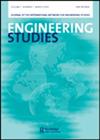Gender Equality Paradise Revisited: The Dynamics of Gender Disbalance in Russian Engineering from the Late Soviet Time to the 2010s
IF 1.3
3区 工程技术
Q2 EDUCATION, SCIENTIFIC DISCIPLINES
引用次数: 1
Abstract
The Soviet Union, during the late socialist period, is believed to have achieved impressive progress in making gender equality in STEM come true. The collapse of the Soviet Union and rapid transition to the market economy, accompanied by destruction of industrial production and economic decline, brought unprecedented challenges to the engineering profession. How has the post-socialist transition affected gender (dis)balance? We use rich, unique, and previously unexplored big data from a Russian-speaking social network, VKontakte, to answer this question. Our primary finding is that there have been negative gender dynamics since the late Soviet times, the gender gap has widened, and gender inequality in engineering has become more acute. Women’s presence in the profession has considerably decreased. Gender segregation, both vertical and horizontal, in higher education and at the workplace has solidified. We found minor gender discrepancies in job mobility patterns, and even slightly declining mobility since Soviet time. However, changing mobility patterns does not seem to have affected the gender imbalance positively. We find partial support for the leaky pipeline argument in higher engineering education and paid employment. We conclude that the 1990s was a period of harsh masculinization and intensifying gender inequality in engineering in Russia, and the current situation is still under the influence of these trends.性别平等天堂再访:苏联后期至2010年代俄罗斯工程中的性别失衡动态
在社会主义后期,苏联被认为在实现STEM领域的性别平等方面取得了令人印象深刻的进展。苏联解体和迅速向市场经济转型,伴随着工业生产的破坏和经济的衰退,给工程专业带来了前所未有的挑战。后社会主义转型如何影响性别失衡?我们使用来自俄语社交网络VKontakte的丰富、独特且未被开发的大数据来回答这个问题。我们的主要发现是,自苏联后期以来,存在消极的性别动态,性别差距扩大,工程领域的性别不平等变得更加严重。从事这一职业的妇女大大减少了。高等教育和工作场所的性别隔离,无论是纵向的还是横向的,都已经固化。我们发现,在工作流动模式上存在较小的性别差异,甚至自苏联时期以来流动性略有下降。然而,流动模式的改变似乎并没有对性别不平衡产生积极影响。我们在高等工程教育和有偿就业中找到了部分支持管道泄漏的论点。我们得出结论,20世纪90年代是俄罗斯工程领域男性化严重、性别不平等加剧的时期,目前的情况仍然受到这些趋势的影响。
本文章由计算机程序翻译,如有差异,请以英文原文为准。
求助全文
约1分钟内获得全文
求助全文
来源期刊

Engineering Studies
ENGINEERING, MULTIDISCIPLINARY-HISTORY & PHILOSOPHY OF SCIENCE
CiteScore
3.60
自引率
17.60%
发文量
12
审稿时长
>12 weeks
期刊介绍:
Engineering Studies is an interdisciplinary, international journal devoted to the scholarly study of engineers and engineering. Its mission is threefold:
1. to advance critical analysis in historical, social, cultural, political, philosophical, rhetorical, and organizational studies of engineers and engineering;
2. to help build and serve diverse communities of researchers interested in engineering studies;
3. to link scholarly work in engineering studies with broader discussions and debates about engineering education, research, practice, policy, and representation.
The editors of Engineering Studies are interested in papers that consider the following questions:
• How does this paper enhance critical understanding of engineers or engineering?
• What are the relationships among the technical and nontechnical dimensions of engineering practices, and how do these relationships change over time and from place to place?
 求助内容:
求助内容: 应助结果提醒方式:
应助结果提醒方式:


